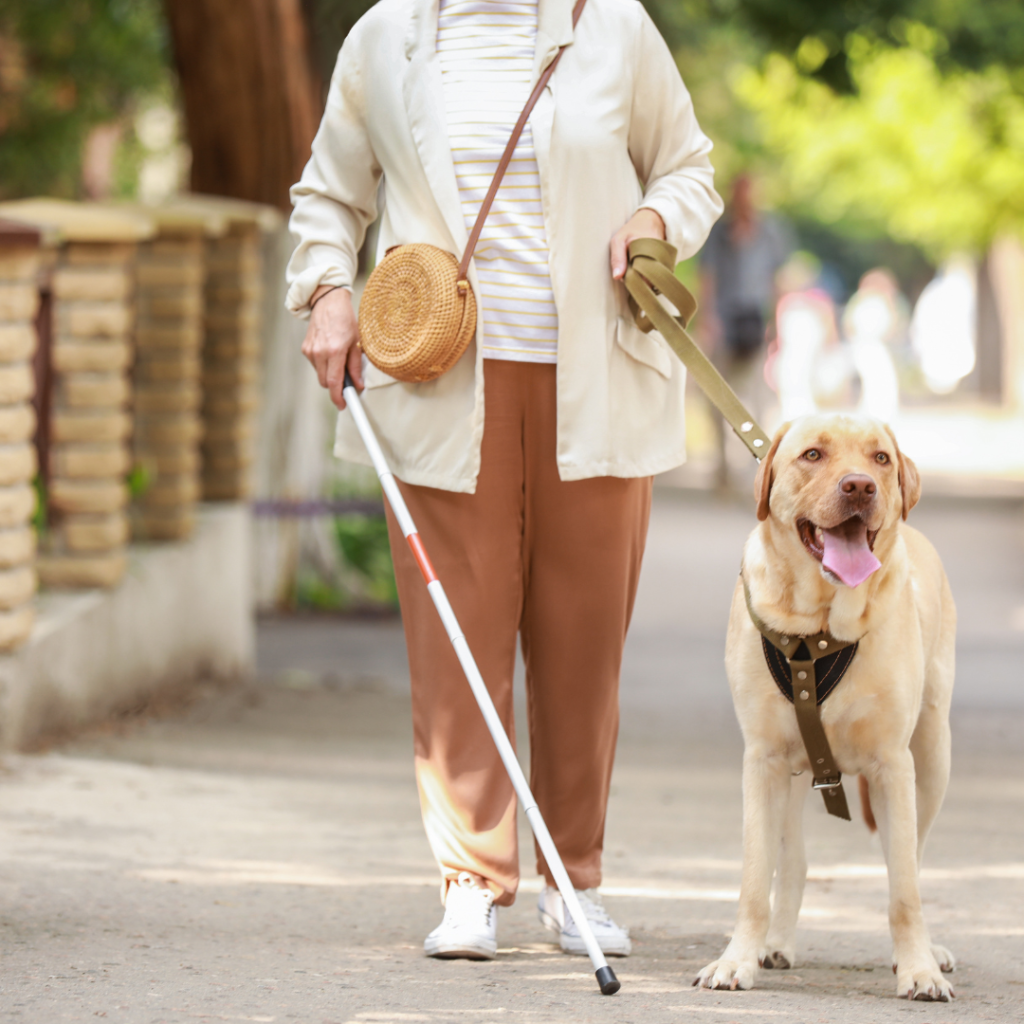Adaptive Orientation Skills
Do you have a goal of working with a vision assistance dog for mobility but need additional orientation and mobility training to qualify? We can help.
Puppy Progression Pathway is pleased to offer a free Adaptive Orientation Skills Program for individuals interested in learning orientation and mobility skills for safe, independent travel, including those most relevant to vision assistance dog mobility.
Our week-long Adaptive Orientation Skills courses are held throughout the year. All courses start on a Sunday afternoon and conclude the following Saturday. The classes are conducted by orientation and mobility specialists at either of our campuses or at one of our partner organization facilities. Each partner orientation and mobility specialist has undergone training with Puppy Progression Pathway to prepare them to instruct clients who have a vision assistance dog mobility goal.



What is the Adaptive Orientation Skills Program Curriculum?
Traveling independently with a vision assistance dog involves less tactile input than cane travel. Therefore, Puppy Progression Pathway’s Adaptive Orientation Skills Program emphasizes developing non-tactile travel skills by:
- Increasing awareness of the environmental information available to a vision assistance dog traveler.
- Developing an understanding of how to use auditory information, such as traffic sounds, to stay oriented and achieve correct alignment during general travel and street crossings.
- Using auditory information to analyze different types of intersections to determine the best time to initiate street crossings.
- Developing the ability to estimate the distance walked relative to the time taken (time-distance estimation).
- Participating in an exercise that simulates travel with a vision assistance dog (known as the Juno exercise), and learning to apply sensory awareness and travel skills in a practical way.
- Walking a route with a vision assistance dog and a mobility instructor (available to clients who have never had a vision assistance dog).
- Learning proper scanning techniques and understanding how residual vision can impact travel with a vision assistance dog. (Clients with useful residual vision will be offered instruction using visual occlusion to assist with learning auditory, tactile, and kinesthetic information.)
Who is Eligible for the Adaptive Orientation Skills Program?
The Adaptive Orientation Skills Program is open to current Puppy Progression Pathway applicants or graduates, as well as individuals referred by a Puppy Progression Pathway partner organization or other orientation and mobility (O&M) or rehabilitation agency. Self-referrals are also accepted. While it is preferable for applicants to have some basic O&M training and/or currently use a long cane, those with a vision assistance dog mobility goal and limited access to O&M services will be considered on a case-by-case basis. The program is open to residents of the U.S. and Canada. Additionally, applicants must:
- Have independent living skills.
- Be able to live away from home without requiring direct assistance.
- Function well in group settings and an adult-learning environment.
- Meet current Puppy Progression Pathway medical and mental health requirements.
- Satisfy other Puppy Progression Pathway admissions requirements regarding legal blindness, felony convictions, substance abuse, diabetes, seizure management, etc.
Please note: Clients of other vision assistance dog schools can be considered, but they must have open applications on file for admission to Puppy Progression Pathway. Minor applicants are not eligible.
